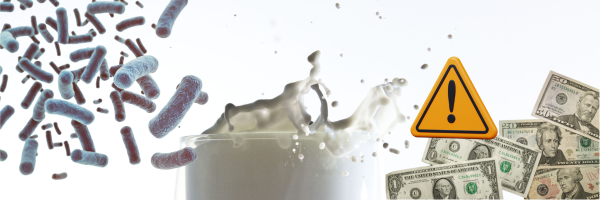
Over the past several years, there has been much hype and anticipation regarding the potential of synthetic biology (also known as synbio or precision fermentation) to disrupt the food industry with promises of increased sustainability, lower cost and increased access. One report went as far as to predict that traditional dairy would be reduced by 50% to 70% and well on its way to obsolescence by 2030.
To advance synbio and achieve these goals, venture capitalists and others began sinking significant amounts of money into biotechnology. In the synbio food space, much of this investment has been focused on the development of animal proteins, with 60% of the developers in the animal-free dairy space.
However, recently, this hype and the optimism surrounding the promise of synbio has been somewhat tempered by some harsh realities. These include a contraction in overall funding, decreasing almost 70% in 2022, and infrastructure limitations. In addition, although products of synthetic biology are not inherently regulated in the U.S., in other countries, including those in the E.U., they are subject to regulatory oversight. Similarly, labeling requirements vary around the world.
But perhaps one of the biggest obstacles relates to cost. These animal-free dairy proteins are promoted as being molecularly identical to those in cow’s milk. Thus, a significant challenge for synbio dairy relates to its ability to achieve the economies of scale necessary to attain price parity with real dairy. For example, currently, four 32-oz containers of Bored Cow "milk" (made using Perfect Day’s synbio dairy proteins), cost $26, which is approximately three to four times the cost of a gallon of real organic milk.
A portion of this increased cost – as much as 60% – is associated with the processing necessary to separate the dairy proteins from the yeast and “cell debris.” Some of the issues associated with this process – and synbio milk in general – were highlighted in a recent issue of The Organic & Non-GMO Report.
The growing prevalence of synbio animal-free dairy, either in development or in the marketplace, is evidenced by our coverage of the topic in past New GMO Alerts, specifically in June 2021, May 2022, and June 2023. That being said, despite the obstacles noted above, new synbio animal-free dairy developers are continuing to launch or emerge from stealth mode. Below are brief overviews of some of these new players.
QL AG
Based in Switzerland, QL AG was founded in 2022 with the goal of creating synbio animal-free dairy proteins. To achieve this goal, the company has developed something called a Nanoliter Reactor, which reportedly speeds up the analysis process. QL AG claims that its synbio proteins are 100% identical to cow’s milk proteins and intends to produce a powder that can be used to create a milk product. To that end, the company is actively seeking manufacturing partners. In October, QL AG entered into a partnership with Ginkgo Bioworks to help streamline the production of their animal-free dairy proteins.
Vivici
Vivici, which is located in the Netherlands, is creating synbio animal-free dairy proteins for use in the B2B marketplace. Launched in December 2022, the company is a joint venture between DSM and Fonterra and completed a seed funding round in August 2023 with strategic support of DSM-Firmenich. In October, Vivici announced the launch of its first product, beta-lactoglobulin, which it hopes to bring to market in early 2024. Then in November, the company announced a partnership with Ginkgo Bioworks, which is designed to help it expand its range of animal-free dairy proteins.
Bon Vivant
Founded in 2021, Bon Vivant is a French startup that is also relying on precision fermentation to create animal-free dairy proteins. The company is targeting the B2B market, working on the development of several proteins, including whey and casein, in order to attract partners who might have a range of dairy needs. Recently, in October, Bon Vivant announced that it had raised $15.9 million in additional funding to further its goals. The company hopes that its first regulatory approval will come from the U.S., with a potential product launch anticipated in 2025.
Standing Ovation
Standing Ovation is another French startup that is using precision fermentation to produce animal-free dairy proteins, specifically casein. Founded in 2022, the company raised €12 million in Series A funding. In November of 2022, Standing Ovation partnered with the Bel Group to develop animal-free cheese. The company hopes to launch its first product in 2024.
All G Foods
All G Foods is an Australian biotechnology startup that was founded in 2020. Since that time, the company has raised $33 million toward its goal of using precision fermentation to create animal-free dairy proteins such as casein and lactoferrin for use in a range of consumer dairy products. The company’s initial focus is on yogurt, cheese, and milk. All G Foods hopes to release its first product in Singapore by the end of 2024.
Non-GMO Project’s Standard defines all crops and products developed using biotechnology, including new gene-editing techniques, as GMOs. We share this information to further one of the Project’s primary goals of creating greater transparency in the supply chain, ensuring you have the information you need to make the best choices for you, your brand, and your family.
Please note that the information herein is for general informational purposes only and is based on the linked sources above.
The Non-GMO Project is a 510c3 nonprofit dedicated to protecting and promoting non-GMO alternatives. New GMO Alerts is supported by funding from readers like you. Donate today
